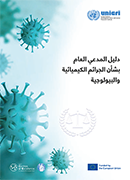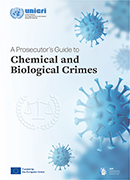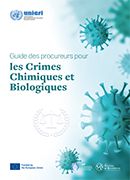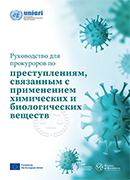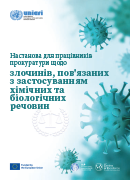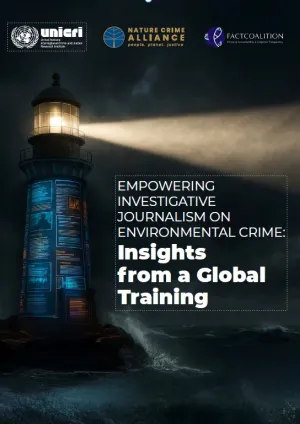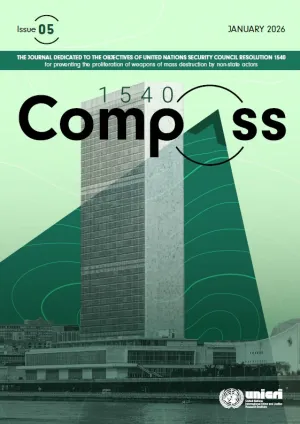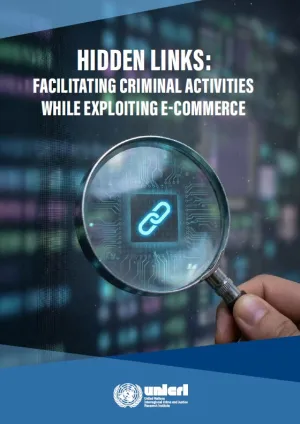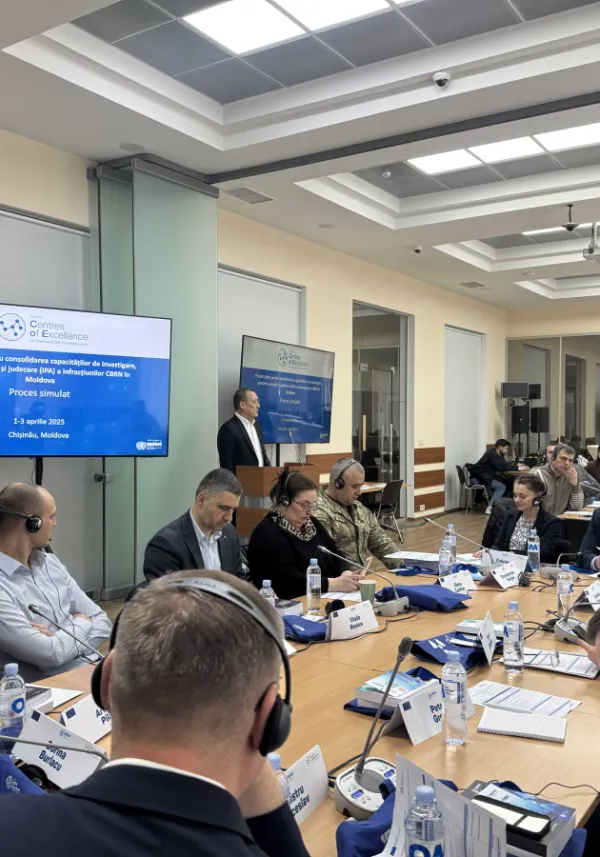
Crimes involving Chemical, Biological, Radiological, and Nuclear (CBRN) materials pose significant threats to humans, animals, the environment, and societal stability. Investigation, prosecution, and adjudication remain critical weak points in addressing these crimes.
UNICRI, in collaboration with key international partners and under the framework of the European Union’s (EU) Chemical, Biological, Radiological and Nuclear (CBRN) Risk Mitigation Centres of Excellence (CoE) Initiative, has developed a comprehensive capacity-buiding programme to strengthen the capacity of prosecutors and judicial authorities in handling CBRN crimes. Drawing on two flagship publications — A Prosecutor’s Guide to Chemical and Biological Crimes (2022) and A Prosecutor’s Guide to Radiological and Nuclear Crimes (2023) — the programme equips practitioners with the knowledge and tools to bring CBRN cases from the crime scene to the courtroom.
Training Package
To complement the Guides, UNICRI has developed a modular, practice-oriented training programme designed to embed the Guides’ principles into professional routines. The programme is interdisciplinary in nature and primarily targets prosecutors, while also engaging judicial, investigative and law enforcement personnel.
The training package includes both theoretical modules and applied exercises structured around five main courses:
Table Top Exercise (TTX)
This in-person simulation is based on real-life case studies and tailored to the specific needs of beneficiary countries. It enables participating authorities to examine strategic and operational-level responses to a CBRN incident, while also identifying gaps and priorities. The TTX can be adapted for national or regional formats and raises awareness of available international assistance and cooperation mechanisms.
Building a Case for the Prosecution of CBRN Crimes
This course guides participants through the end-to-end process of prosecuting a CBRN crime. Comprising 40 lessons, the curriculum covers:
• International assistance and mutual legal support
• Crime scene management under CBRN conditions
• Planning investigations and prosecutions
• Chain of custody and evidentiary integrity
• Adjudication and appeal
• Best practices, with real-life case analysis
CBRN Criminalisation
This module helps national authorities assess legal gaps and align domestic legislation with obligations under international conventions, including:
• The Chemical Weapons Convention (CWC)
• The Biological Weapons Convention (BWC)
• UN Security Council Resolution 1540
• The Convention on the Physical Protection of Nuclear Material (CPPNM)
• The International Convention for the Suppression of Acts of Nuclear Terrorism (ICSANT)
Participants explore model laws, classification schemes, and the mandates of international organisations that provide legislative assistance.
Moot Court / Mock Trial
After completing the theoretical modules, participants take part in a two-day courtroom simulation. Real judges, prosecutors and investigators facilitate this exercise, giving participants the chance to present their case and test prosecutorial strategies in a realistic setting.
National Train-the-Trainer (TTT) Course
The TTT component ensures sustainability and national ownership of the training. Prosecutorial training institutions and academies are involved from the outset, and the final three-day course equips trainers to deliver the programme autonomously. The training package is then officially transferred to the designated national institution.
All modules have been successfully implemented in Moldova and Ukraine, confirming the programme’s feasibility and impact. As of early 2025, fourteen countries have requested to adopt the full package, officially titled Strengthening the CBRN Investigation, Prosecution, and Adjudication Capabilities.
From September 2025, the programme will shift to a regional delivery model, focusing on the Balkans and Gulf countries, to maximise outreach and relevance.
This initiative has been greatly enhanced by the participation of internationally recognised prosecutors, judges, law enforcement officers, and forensic experts, whose practical knowledge has been instrumental in translating complex scientific material into actionable legal strategies.
Background
At the request of EU CBRN CoE partner countries, UNICRI was tasked with addressing one of the most critical and underdeveloped components in the CBRN risk mitigation chain: the prosecution and adjudication of CBRN crimes. Recognised by subject matter experts as a key vulnerability, this area had long lacked tailored guidance and training.
To close this gap, the EU provided funding and strategic support for the development of two non-binding, high-level guidance manuals and corresponding training packages. These resources aim to integrate CBRN-specific prosecutorial practices into the daily operations of national authorities, including prosecutors, law enforcement and judicial actors.
The first milestone was the publication in 2022 of A Prosecutor’s Guide to Chemical and Biological Crimes, developed in close coordination with the Organisation for the Prohibition of Chemical Weapons (OPCW), the International Association of Prosecutors (IAP) and other CBRN experts. The second guide, A Prosecutor’s Guide to Radiological and Nuclear Crimes, was finalised in 2023 and prepared in partnership with the International Atomic Energy Agency (IAEA), the United Nations Office on Drugs and Crime (UNODC), the European Commission’s Joint Research Centre (JRC), and other technical contributors. It is scheduled for publication in all EU CBRN CoE official languages.
These Guides present a broad spectrum of legal, investigative and procedural aspects, including approximately twenty real case examples to illustrate lessons learned and best practices.
Download A Prosecutor's Guide to Radiological and Nuclear Crimes (2024)
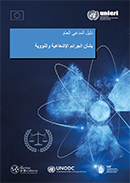 Arabic | 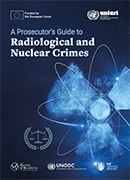 English | 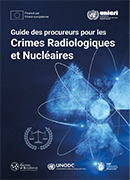 French | 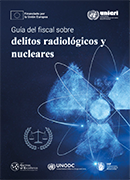 Spanish | 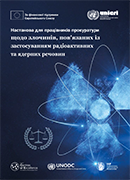 Ukrainian |
Download A Prosecutor’s Guide to Chemical and Biological Crimes (2022)
